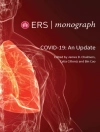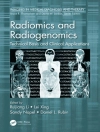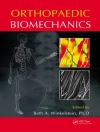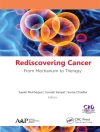Now in a fully revised and expanded second edition, this book remains the gold standard guide to the surgical treatment of diseases in the cerebellopontine angle (CPA), the fragile area of the skull base that Harvey Cushing famously described as “the bloody angle.” This edition combines current information on the relevant clinical diseases of the CPA with dramatically improved surgical management of its diseases, arranged in five thematic sections.
The first section presents the basis and rationale for treatment, including historical perspectives, microsurgical anatomy, relevant radiology and neurology. Part two is composed of chapters on surgical approaches, and parts three and four provide detailed descriptions of surgical management techniques for vestibular schwannomas and non schwannomatous lesions, respectively. The final section provides 21 distinct clinical cases with associated video segments, demonstrating the approaches and techniques in real time.
With images courtesy of the renowned Barrow Neurological Institute,
Surgery of the Cerebellopontine Angle, Second Edition is a boon resource for expert specialists in neurosurgery, neurotology, neuroradiology, otolaryngology/head and neck surgery, and endovascular surgery.
İçerik tablosu
Part I. Foundations for Treatment.- Historical Perspectives.- Microsurgical Anatomy of the Cerebellopontine Angle and Its Suboccipital Retromastoid Approaches.- Radiology.- Neurology.-
Part II. Surgical Approaches.- Approaches to the Cerebellopontine Angle.- Combined Surgical Approaches.- Functional Surgery of the Cerebellopontine Angle.- Endoscopy in the Cerebellopontine Angle.-
Part III. Vestibular Schwannomas.- Biology and Genetics of Vestibular Schwannomas in Tumors of the Cerebellopontine Angle.- Treatment Options for Acoustic Neuroma, Including Stereotactic Radiosurgery.- Translabyrinthine Approach.- Hearing Rehabilitation Following Acoustic Neuroma Surgery.- Acoustic Neuroma Surgery: Retrosigmoid Techniques.- Acoustic Neuroma Surgery: The Middle Fossa Approach.- Complications and Cranial Nerve Rehabilitation.- Facial Reanimation.- Hearing and Surgical Considerations in Neurofibromatosis Type 2.- Prevention and Management of Postoperative Cerebrospinal Fluid Leakage.-
Part IV. Nonschwannomatous Lesions of the CPA.- Temporal Bone Neoplasms.- Congenital Rest Lesions and Rare Tumors.- Vascular Lesions of the Cerebellopontine Angle.-
Part V. Cases and Approaches (animations and videos).- Case 1: Retrosigmoid Approach for Vestibular Schwannoma.- Case 2: Combined Transpetrosal Approach with Hearing Preservations for Resection of a Meningioma.- Case 3: Far-Lateral Approach for a Foramen Magnum Meningioma.- Case 4: Resection of an Acoustic Schwannoma Complicated by Tumor Encasement of the Anterior Inferior Cerebellar Artery Using a Translabyrinthine Approach.- Case 5: Transcondylar Approach for Giant Aneurysm with Posterior Inferior Cerebellar Artery Bypass.- Case 6: Far-Lateral Approach for a Posterior Inferior Cerebellar Artery Aneurysm Clipping.- Case 7: Right Retrosigmoid Craniotomy for Microvascular Decompression for Trigeminal Neuralgia (Endoscope-Assisted).- Case 8: Right Retrosigmoid Craniotomy for Microvascular Decompression of Hemifacial Spasm.- Case 9: Left Retrosigmoid Craniotomy for Microvascular Decompression of Glossopharyngeal Neuralgia.- Case 10: Anterior Transpetrosal Approach for Resection of Petroclival Meningioma.- Case 11: Vestibular Schwannoma Resection with Facial Nerve Displaced Dorsally.- Case 12: Right Retrosigmoid Craniotomy for Pontine Cavernous Malformation.- Case 13: Lateral Transcondylar Craniotomy for PICA Aneurysm.- Case 14: Left Retrosigmoid Approach in Large Vestibular Schwannoma in Patient with NF2.- Case 15: Retrosigmoid Approach for a Left-sided Trigeminal Schwannoma.- Case 16: Retrosigmoid Approach to Right-sided Epidermoid Cyst.- Case 17: Translabrynthine Transtemporal Approach for Left Vestibular Schwannoma.- Case 18: Middle Cranial Fossa Craniotomy for a Left Petrous Apex Lesion.- Case 19: Extended Translabyrinthine Approach for Left-sided Vestibular Schwannoma.- Case 20: Right-sided Retrosigmoid Approach to Small Vestibular Schwannoma.- Case 21: Transotic Approach to Left-sided Jugular Paraganglioma/Glomus Tumor for Partial Debulking.- Appendix: Anatomic Dissection.
Yazar hakkında
Nicholas C. Bambakidis, MD
Chair of Neurological Surgery
Vice President and Director
The Neurological Institute
University Hospitals of Cleveland
Harvey Huntington Brown, Jr., Endowed Chair of Neurological Surgery
Professor, Neurological Surgery
Case Western Reserve University School of Medicine
Cleveland, OH, USA
Cliff A. Megerian, MD, FACS
Chief Executive Officer
University Hospitals Health System
Jane and Henry Meyer Distinguished CEO Endowed Chair
Professor of Otolaryngology
Head and Neck Surgery
Professor of Neurological Surgery
Case Western Reserve University School of Medicine
Cleveland, OH, USA
Robert F. Spetzler, MD, FACS
Emeritus President and CEO
Emeritus Chair, Department of Neurosurgery
Barrow Neurological Institute
Phoenix, AZ, USA












